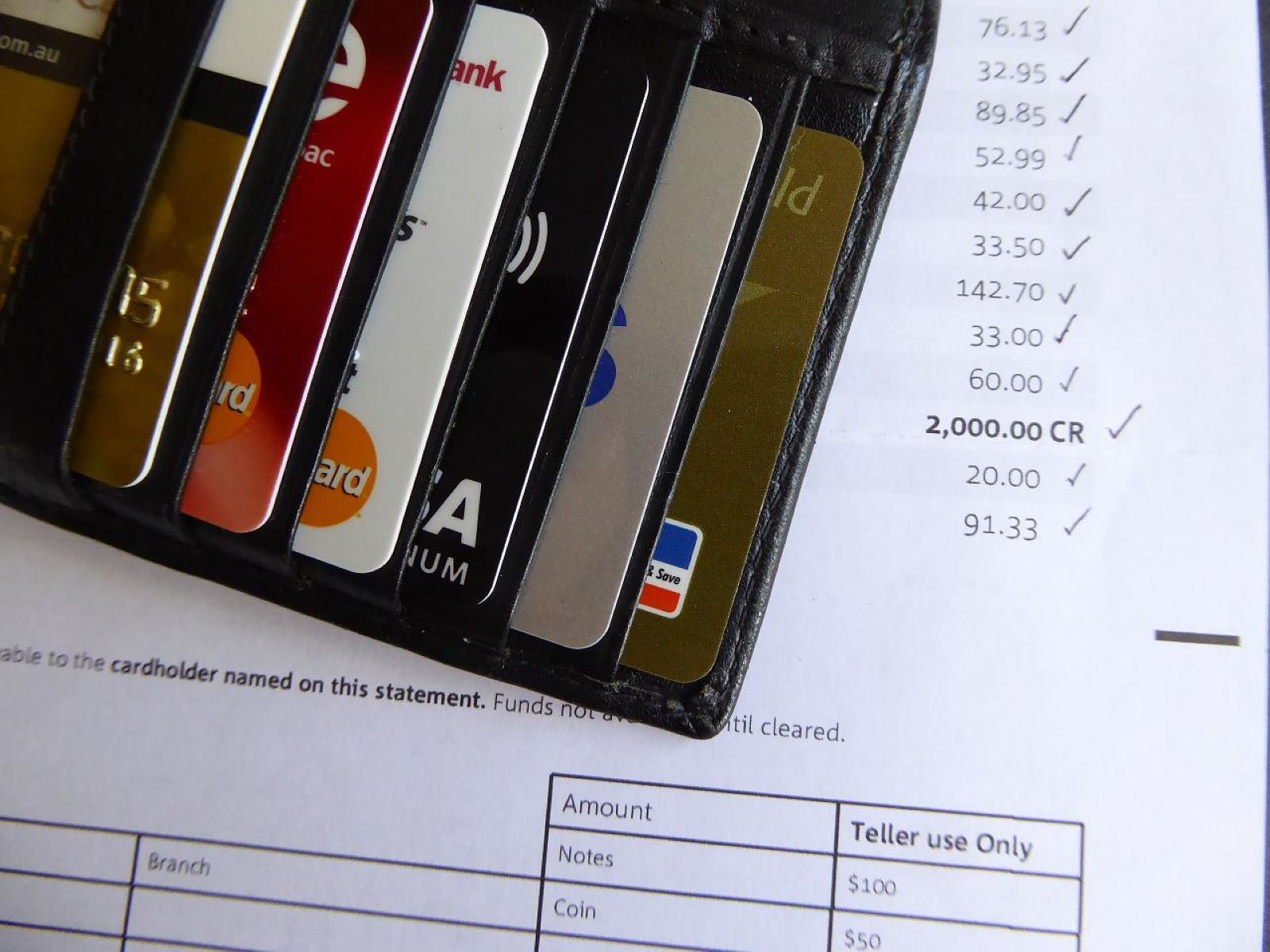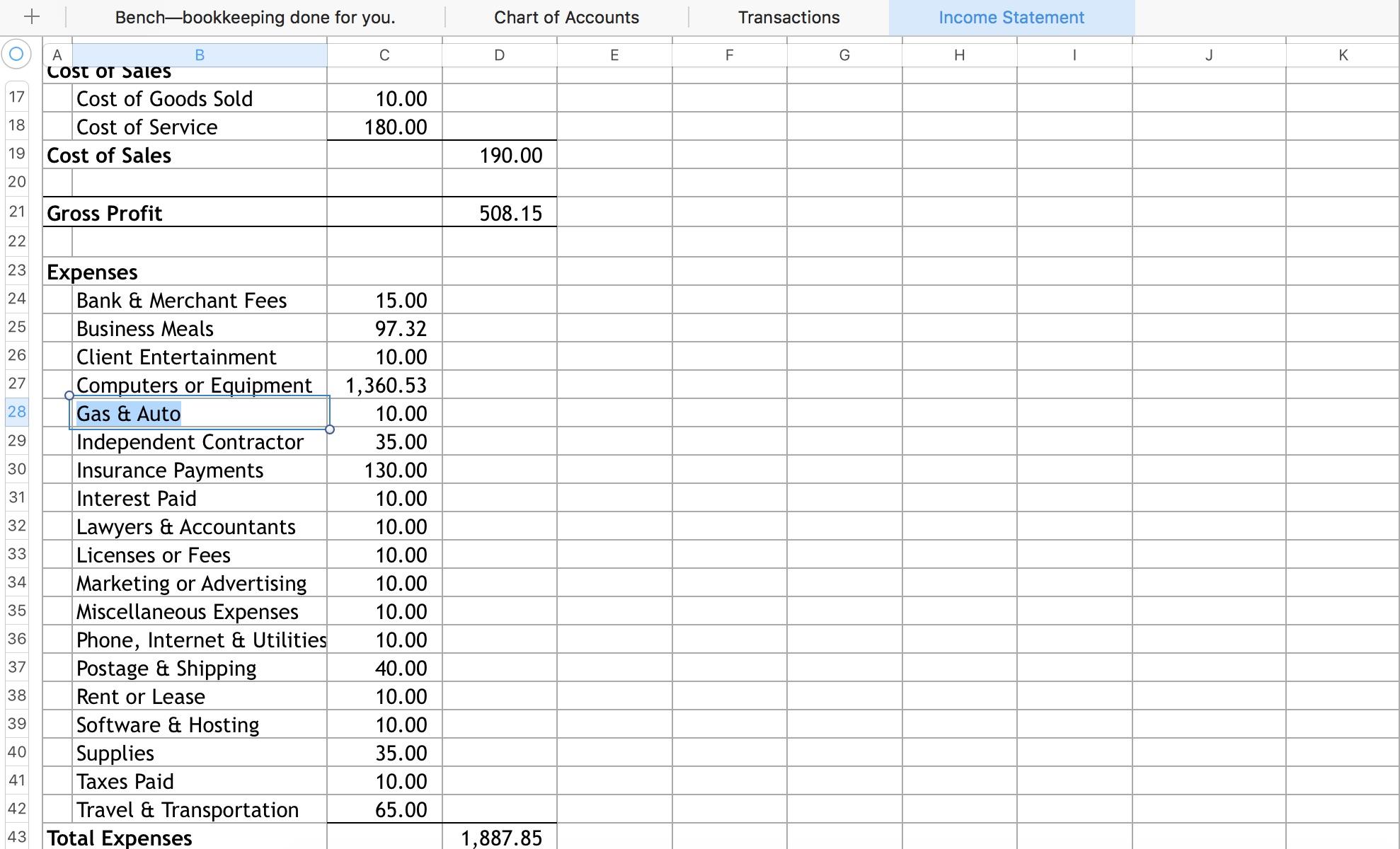

Finance
What Does AVS Mean On A Credit Card
Published: November 7, 2023
Learn the meaning behind AVS on a credit card and how it impacts your finances. Discover the importance of AVS for secure online transactions and fraud prevention.
(Many of the links in this article redirect to a specific reviewed product. Your purchase of these products through affiliate links helps to generate commission for LiveWell, at no extra cost. Learn more)
Table of Contents
Introduction
When it comes to credit card transactions, security is of utmost importance for both consumers and retailers. One powerful tool that helps verify the authenticity of credit card transactions is Address Verification Service (AVS). If you’ve ever made an online purchase or used your credit card at a merchant’s point of sale, you might have seen the letters “AVS” appear during the transaction process.
AVS is a fraud prevention tool utilized by credit card companies and merchants to validate the billing address provided during a transaction. It compares the address information entered by the cardholder with the address on file with the issuing bank. By doing so, AVS helps in verifying that the person making the purchase is the legitimate cardholder and that the transaction is not fraudulent.
AVS is an integral part of the overall security measures for credit card transactions. It not only helps protect consumers from unauthorized charges but also prevents retailers from falling victim to fraudulent activities. Understanding how AVS works and its implications can provide valuable insights into the importance of secure online transactions and the role of technology in preventing credit card fraud.
In this article, we will delve deeper into the world of AVS, exploring its functionality, purpose, benefits, and limitations. We will also discuss how AVS is employed by retailers, especially in the context of card-not-present transactions. By the end of this article, you will have a comprehensive understanding of AVS and its significance in safeguarding credit card transactions.
Definition of AVS
Address Verification Service, commonly known as AVS, is a security feature used by credit card companies and merchants to validate the accuracy of a billing address provided during a transaction. It is designed to minimize the risk of fraudulent credit card transactions by verifying that the person using the card is the legitimate cardholder.
When a cardholder makes a purchase, the AVS system compares the address provided with the address on file with the issuing bank. It evaluates the numerical components of the address, such as the street number and zip code, and assigns a specific code to indicate the level of match between the two addresses. These codes are then transmitted back to the merchant, who can make an informed decision on whether to approve or decline the transaction based on the AVS response.
The AVS response codes can vary depending on the credit card company and the issuing bank. However, the most common codes include:
- Y – Address and zip code match
- N – No match or address not provided
- A – Address matches, but zip code does not
- Z – Zip code matches, but address does not
- X – Address and zip code format are not available
- W – 9-digit zip code matches, but address does not
It’s important to note that AVS does not verify the identity of the cardholder, but rather confirms the billing address provided during the transaction. It acts as an additional layer of protection against fraudulent activities and helps prevent unauthorized transactions from occurring.
Overall, AVS plays a crucial role in securing credit card transactions by ensuring that the person making the purchase has access to the legitimate billing address associated with the card. Understanding the definition and functionality of AVS is essential for both consumers and retailers to protect themselves from credit card fraud.
How AVS Works
Address Verification Service (AVS) works by comparing the address information provided during a credit card transaction with the address on file with the issuing bank. This process helps verify the authenticity of the transaction and reduces the risk of fraud. Here’s a step-by-step breakdown of how AVS works:
- The cardholder initiates a credit card transaction by providing their payment information, including the billing address, to the retailer.
- The retailer communicates the transaction details, including the address, to the payment processor or acquiring bank.
- The payment processor then forwards the transaction information to the appropriate credit card network, such as Visa or Mastercard.
- The credit card network routes the transaction to the issuing bank, which holds the cardholder’s account.
- The issuing bank retrieves the cardholder’s account information and initiates the AVS verification process.
- The AVS system compares the numerical components of the provided address, such as the street number and zip code, with the address on file.
- Based on the level of address match, the AVS system generates a response code and sends it back to the issuing bank.
- The issuing bank then communicates the AVS response code to the payment processor, who passes it along to the retailer.
- The retailer receives the AVS response code and can make an informed decision on whether to approve or decline the transaction.
The AVS response code indicates the level of match between the provided address and the address on file. For example, a response code of “Y” signifies a full address match, while a code of “N” indicates no match or an address not provided. The retailer can use these codes to determine the risk associated with the transaction and whether to proceed with the sale.
It’s important to note that AVS may not always provide a definitive answer. In some cases, AVS could return a partial match or no match due to address variations or data entry errors. Retailers should exercise caution when interpreting AVS response codes and consider other factors, such as the transaction amount and additional security measures, to make an informed decision.
In summary, AVS works by comparing the address information provided during a credit card transaction with the address on file with the issuing bank. This verification process helps enhance the security of credit card transactions and minimize the risk of fraudulent activities.
Purpose of AVS
The primary purpose of Address Verification Service (AVS) is to enhance the security of credit card transactions by validating the accuracy of the billing address provided during a transaction. AVS serves several key purposes that contribute to the overall goal of preventing fraudulent activities:
1. Validating Cardholder Information
AVS helps verify that the person making the purchase is the legitimate cardholder by comparing the address provided with the address on file with the issuing bank. This step ensures that the transaction is authorized and minimizes the risk of unauthorized usage of credit card information.
2. Preventing Unauthorized Charges
By confirming the address, AVS acts as a deterrent to potential fraudsters who might attempt to use stolen or counterfeit credit cards. If the address provided does not match the address on file, the AVS response code can alert the retailer to the potential risk and decline the transaction.
3. Reducing Chargebacks
Chargebacks occur when a cardholder disputes a charge, leading to the reversal of the transaction and a financial loss for the retailer. AVS helps minimize chargebacks by ensuring the accuracy of the billing address, which is an essential piece of evidence in resolving disputes and determining the legitimacy of the charge.
4. Enhancing Merchant Confidence
Retailers can have increased confidence in processing credit card transactions when utilizing AVS. By verifying the address, AVS provides an additional layer of security that adds credibility to the transaction. This boosts the trust between merchants and the customers, ultimately leading to improved customer satisfaction and loyalty.
5. Complying with Industry Regulations
Some industries and jurisdictions have specific regulations in place that require merchants to implement certain security measures, including AVS, to protect customer data and prevent fraud. By utilizing AVS, merchants can demonstrate compliance with these regulations, avoiding potential penalties and maintaining a positive reputation within their industry.
Overall, the purpose of AVS is to strengthen the security of credit card transactions, protect both cardholders and merchants from fraudulent activities, and ensure compliance with industry regulations. By validating the accuracy of the billing address, AVS plays a vital role in minimizing the risk of unauthorized charges, reducing chargebacks, and fostering customer trust in the payment process.
Benefits of AVS
Address Verification Service (AVS) offers several benefits to both consumers and merchants in the realm of credit card transactions. These benefits contribute to fraud prevention, increased security, and improved customer experience. Here are some key advantages of using AVS:
1. Fraud Prevention
One of the primary benefits of AVS is its ability to detect and prevent fraudulent credit card transactions. By comparing the address provided during a transaction with the address on file with the issuing bank, AVS helps verify the authenticity of the transaction and reduce the risk of unauthorized charges. This proactive measure acts as a deterrent to fraudsters and enhances overall transaction security.
2. Increased Security
Utilizing AVS adds an additional layer of security to credit card transactions. By validating the accuracy of the billing address, merchants can have increased confidence that the transaction is legitimate. This helps protect both consumers and merchants from falling victim to fraudulent activities and ensures that only authorized cardholders can make purchases.
3. Reduced Chargebacks
Chargebacks can be costly and time-consuming for merchants, often resulting in financial losses. AVS helps reduce the risk of chargebacks by validating the billing address, which serves as crucial evidence in resolving disputes. By having accurate address information, merchants can defend against invalid chargeback claims and reduce the financial impact on their business.
4. Enhanced Customer Experience
AVS contributes to a positive customer experience by providing an additional layer of security without causing significant disruptions during the checkout process. Customers can have peace of mind knowing that their transactions are being verified, which builds trust and confidence in their interactions with the merchant. This leads to increased customer satisfaction and a higher likelihood of repeat business.
5. Regulatory Compliance
Certain industries and jurisdictions have specific regulations in place that require merchants to implement security measures to protect customer data and prevent fraud. AVS helps merchants comply with these industry regulations by ensuring the accuracy of the billing address. By utilizing AVS, merchants can meet regulatory requirements, minimize potential penalties, and maintain a strong reputation within their industry.
In summary, the benefits of AVS include fraud prevention, increased security, reduced chargebacks, enhanced customer experience, and regulatory compliance. By utilizing AVS, both consumers and merchants can enjoy a safer and more secure credit card transaction process, ultimately leading to a more trustworthy and efficient payment experience.
Limitations of AVS
While Address Verification Service (AVS) is a valuable tool in preventing credit card fraud, it is important to understand its limitations. AVS has certain inherent constraints that can impact its effectiveness and accuracy. Here are some limitations of AVS to consider:
1. International Transactions
AVS is primarily designed to verify addresses within the United States. It may not be as effective when processing international transactions, as address formats and standards can vary across different countries. This limitation can result in a higher rate of “N” (no match) responses for international transactions, potentially leading to legitimate transactions being declined.
2. Address Variations
AVS matches the numerical components of the address (e.g., street number and zip code) but does not account for address variations such as abbreviations or misspellings. For example, “St.” vs. “Street” or “Ave” vs. “Avenue.” If the address provided during the transaction has even a slight variation compared to the address on file, AVS may generate a “N” (no match) response, leading to potential transaction declines.
3. Data Entry Errors
Human error in data entry can occur during the transaction process, leading to inconsistencies between the address provided and the address on file. These errors can result in false AVS response codes, potentially causing legitimate transactions to be declined or fraudulent transactions to be approved. It is crucial for merchants to implement manual review processes to minimize the risk of false declines or fraudulent approvals.
4. Limited Identity Verification
AVS primarily focuses on verifying the accuracy of the billing address, but it does not validate the identity of the cardholder. It does not consider factors such as cardholder name or CVV (Card Verification Value) code. This limitation means that AVS alone cannot guarantee full protection against identity theft or unauthorized usage of credit card information.
5. False Sense of Security
While AVS provides an additional layer of security, it is important for merchants to recognize that it is not foolproof. Relying solely on AVS without implementing other security measures can create a false sense of security. Fraudsters are becoming increasingly sophisticated, finding ways to bypass AVS checks. Merchants should consider additional fraud prevention tools and strategies to complement AVS and strengthen overall transaction security.
Despite these limitations, AVS remains a valuable tool for validating billing address information and preventing fraudulent credit card transactions. It is crucial for merchants to understand these limitations and implement additional security measures to ensure comprehensive fraud prevention and provide a seamless customer experience.
AVS and Credit Card Fraud Prevention
Address Verification Service (AVS) plays a crucial role in the prevention of credit card fraud. By comparing the billing address provided during a transaction with the address on file, AVS helps verify the legitimacy of the transaction and reduces the risk of unauthorized charges. Here are some key ways AVS contributes to credit card fraud prevention:
1. Verification of Cardholder Identity
AVS verifies the accuracy of the billing address associated with the credit card. As the billing address is typically known only by the legitimate cardholder, this verification process helps ensure that the person making the purchase is the authorized cardholder. By confirming the cardholder’s identity, AVS acts as a crucial barrier against fraudulent transactions.
2. Detection of Stolen or Counterfeit Cards
Fraudsters often use stolen or counterfeit credit cards to make unauthorized purchases. AVS provides an additional layer of defense by comparing the provided address with the address associated with the card. If the address does not match or is not provided, the AVS response code can alert the merchant to the potential risk, allowing them to decline the transaction and prevent fraudulent charges.
3. Red Flags for Suspicious Activities
Unusual patterns or inconsistencies in the AVS response codes can raise red flags and prompt further investigation. For example, multiple failed AVS attempts, repeated “N” (no match) responses, or a sudden change in the billing address can indicate potential fraudulent activities. Merchants can use these flags as indicators to conduct additional verification measures and mitigate the risk of fraudulent transactions.
4. Protection Against Card-Not-Present Fraud
AVS is particularly valuable in preventing card-not-present (CNP) fraud, which occurs in online and over-the-phone transactions. Fraudsters often rely on stolen credit card details for CNP fraud. By verifying the billing address, AVS helps reduce the risk of unauthorized CNP transactions and ensures that the cardholder’s information is accurately matched before allowing the purchase to proceed.
5. Lower Chargeback Rates
Chargebacks can be a significant issue for merchants, resulting in financial loss and potentially damaging their reputation. AVS helps reduce the occurrence of chargebacks by providing evidence of the cardholder’s address validation. In the event of a chargeback dispute, merchants can leverage the AVS response codes as vital supporting documentation to demonstrate that the transaction was legitimate and authorized by the cardholder.
While AVS is an effective tool for credit card fraud prevention, it is important to acknowledge that it should not be the sole defense against fraud. Additional security measures, such as CVV verification, 3D Secure protocols, and fraud monitoring systems, should be implemented in conjunction with AVS to ensure comprehensive protection and minimize the risk of fraudulent transactions.
In summary, AVS plays a critical role in credit card fraud prevention by verifying the billing address, detecting suspicious activities, protecting against card-not-present fraud, and reducing chargeback rates. By utilizing AVS and implementing other security measures, merchants can enhance transaction security and protect both themselves and consumers from the potentially devastating impacts of credit card fraud.
AVS Usage by Retailers and Merchants
Address Verification Service (AVS) is widely utilized by retailers and merchants as an essential tool for credit card transaction security. AVS provides valuable information about the accuracy of the billing address, enabling merchants to make informed decisions regarding transaction approval. Here are key ways retailers and merchants use AVS:
1. Transaction Authorization
Merchants use AVS to validate the billing address provided by the customer during a transaction. By comparing the address with the information on file with the issuing bank, AVS generates response codes indicating the level of address match. Merchants consider these codes in their decision-making process, determining whether to approve the transaction or flag it for further verification.
2. Fraud Detection and Prevention
AVS is a powerful tool in the fight against credit card fraud. By detecting inconsistencies or mismatches between the provided address and the address on file, AVS helps identify potential fraudulent activities. Merchants can use AVS response codes as a basis for risk assessment, allowing them to decline suspicious transactions and protect themselves and their customers from unauthorized charges.
3. Risk Management
AVS plays a crucial role in risk management for retailers and merchants. By leveraging AVS response codes, merchants can assess the likelihood of a transaction being legitimate or fraudulent. Transactions with a “Y” (full address match) response code are typically deemed lower risk, while transactions with an “N” (no match) response code may warrant closer scrutiny or additional verification to mitigate potential risk.
4. E-commerce and Card-Not-Present Transactions
In the digital age, e-commerce and card-not-present (CNP) transactions are increasingly common. AVS is particularly valuable in these contexts, as it provides an additional layer of security by verifying the billing address. Merchants can use AVS to mitigate the risk associated with CNP transactions and reduce the likelihood of unauthorized usage of credit card information.
5. Compliance with Regulations
Certain industries and jurisdictions have specific regulations in place that require merchants to implement security measures to protect customer data and prevent fraud. AVS helps merchants comply with these regulations by providing a mechanism for address verification during credit card transactions. By utilizing AVS, merchants can demonstrate their adherence to industry guidelines and regulatory requirements.
In summary, AVS is extensively used by retailers and merchants to enhance transaction security, detect and prevent credit card fraud, manage risk, and comply with industry regulations. By leveraging AVS as part of their fraud prevention strategy, retailers and merchants can protect themselves and their customers while conducting secure and trustworthy credit card transactions.
AVS and Card-Not-Present Transactions
Address Verification Service (AVS) is particularly relevant and valuable when it comes to card-not-present (CNP) transactions, such as online or over-the-phone purchases. CNP transactions pose unique challenges and higher risks for merchants due to the lack of physical verification. Here’s how AVS is utilized in CNP transactions:
1. Address Verification in Online Transactions
In online transactions, customers enter their billing address during the checkout process. AVS compares this address with the address on file with the issuing bank to determine the level of match. The AVS response codes assist merchants in verifying the validity of the provided address and making informed decisions about transaction approval.
2. Detection of Fraudulent Activities
AVS helps merchants detect potential fraud in CNP transactions. By comparing the billing address, AVS can identify mismatches or inconsistencies that may indicate fraudulent activities. Merchants can analyze the AVS response codes alongside other security measures to assess the level of risk associated with a transaction and take appropriate action, such as declining or subjecting the transaction to additional verification.
3. Reducing Chargebacks
Chargebacks are a concern for merchants in CNP transactions, as they can result in financial loss and potential damage to their reputation. By verifying the billing address through AVS, merchants can provide evidence of address validation in the event of a chargeback dispute. This evidence strengthens their case and reduces the likelihood of chargebacks caused by fraudulent transactions.
4. Balancing Security and Conversion Rate
Merchants must strike a balance between transaction security and the smooth customer experience in CNP transactions. While AVS helps in preventing fraud, stringent AVS checks may also lead to false negatives, resulting in legitimate transactions being declined. To avoid this, merchants can adjust AVS settings to allow more flexibility while still maintaining a satisfactory level of security.
5. Supplementing AVS with Additional Security Measures
While AVS provides an important layer of protection in CNP transactions, merchants should not solely rely on it. Combining AVS with other security measures, such as CVV verification, device fingerprinting, 3D Secure protocols, and fraud monitoring systems, enhances transaction security and reduces the risk of fraudulent activities.
In summary, AVS is a crucial tool in addressing the unique challenges of card-not-present transactions. By verifying the billing address, AVS helps merchants detect and prevent fraud, reduce chargebacks, and strike a balance between security and conversion rate. Merchants should consider implementing complementary security measures alongside AVS to ensure comprehensive protection in CNP transactions.
Conclusion
Address Verification Service (AVS) plays a vital role in the security of credit card transactions. By verifying the accuracy of the billing address provided during a transaction, AVS helps prevent fraudulent activities, protect consumers and merchants, and enhance overall transaction security. Throughout this article, we have explored various aspects of AVS, including its definition, functionality, purpose, benefits, and limitations.
AVS serves as a powerful tool for validating the authenticity of cardholder information and preventing unauthorized charges. It provides merchants with valuable information through response codes, indicating the level of address match, which aids in decision-making during transaction authorization. Additionally, AVS helps merchants reduce chargebacks, increase customer trust, and comply with industry regulations.
However, it is essential to understand the limitations of AVS. International transactions, address variations, data entry errors, limited identity verification, and the potential for a false sense of security are factors to consider. Merchants should implement additional security measures and use AVS in conjunction with other fraud prevention tools to ensure comprehensive protection.
Furthermore, AVS is particularly significant in card-not-present (CNP) transactions, such as online and over-the-phone purchases. It helps mitigate the risks associated with CNP transactions by verifying the billing address, detecting potential fraud, and reducing chargebacks. Merchants must maintain a balance between security and the customer experience in CNP transactions, while supplementing AVS with complementary security measures to enhance overall transaction security.
In conclusion, AVS is an invaluable asset in the fight against credit card fraud. By leveraging AVS and understanding its capabilities and limitations, merchants can establish a secure and trustworthy payment environment. As technology and fraud prevention techniques continue to evolve, AVS remains a dependable tool in ensuring the integrity of credit card transactions, protecting both consumers and merchants in the ever-changing landscape of financial transactions.














